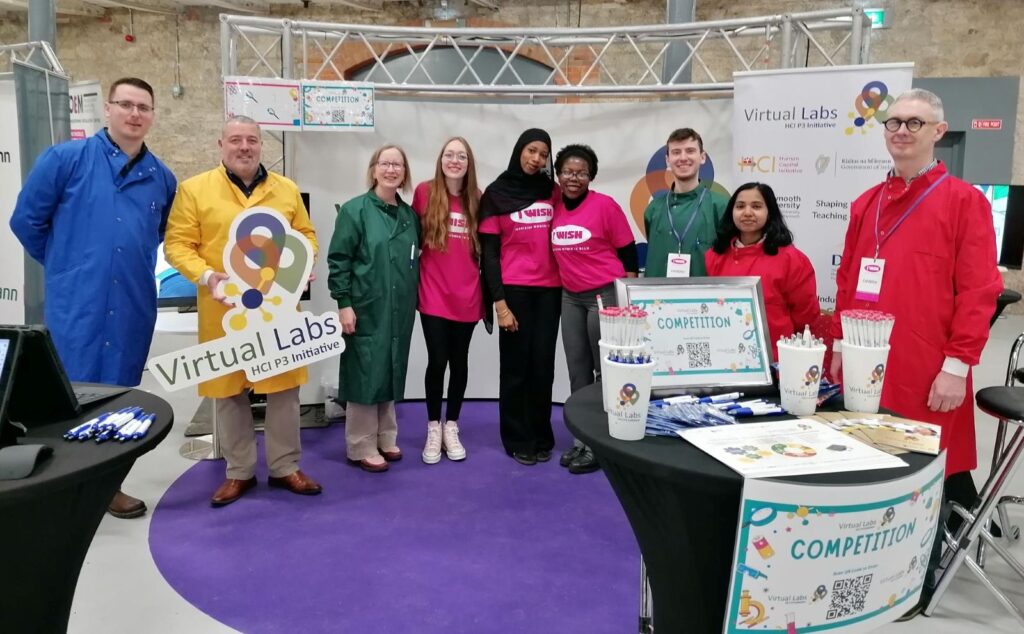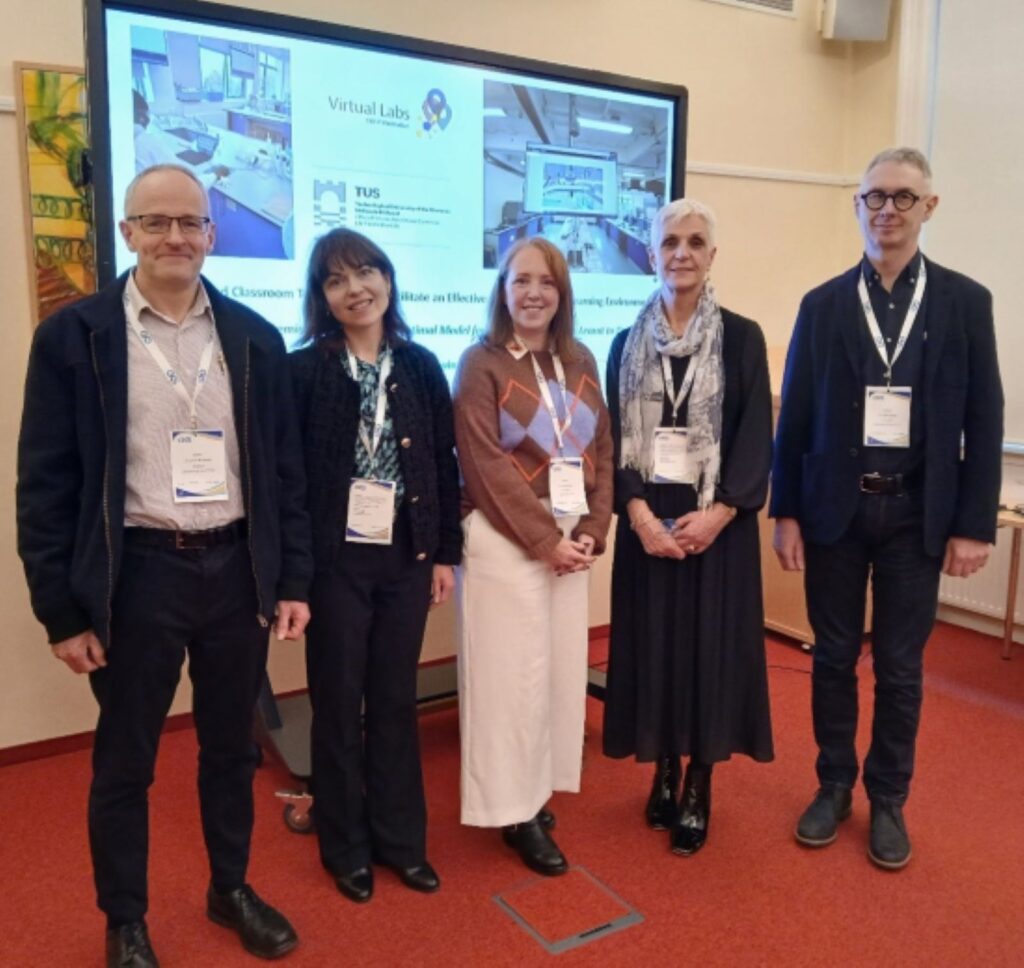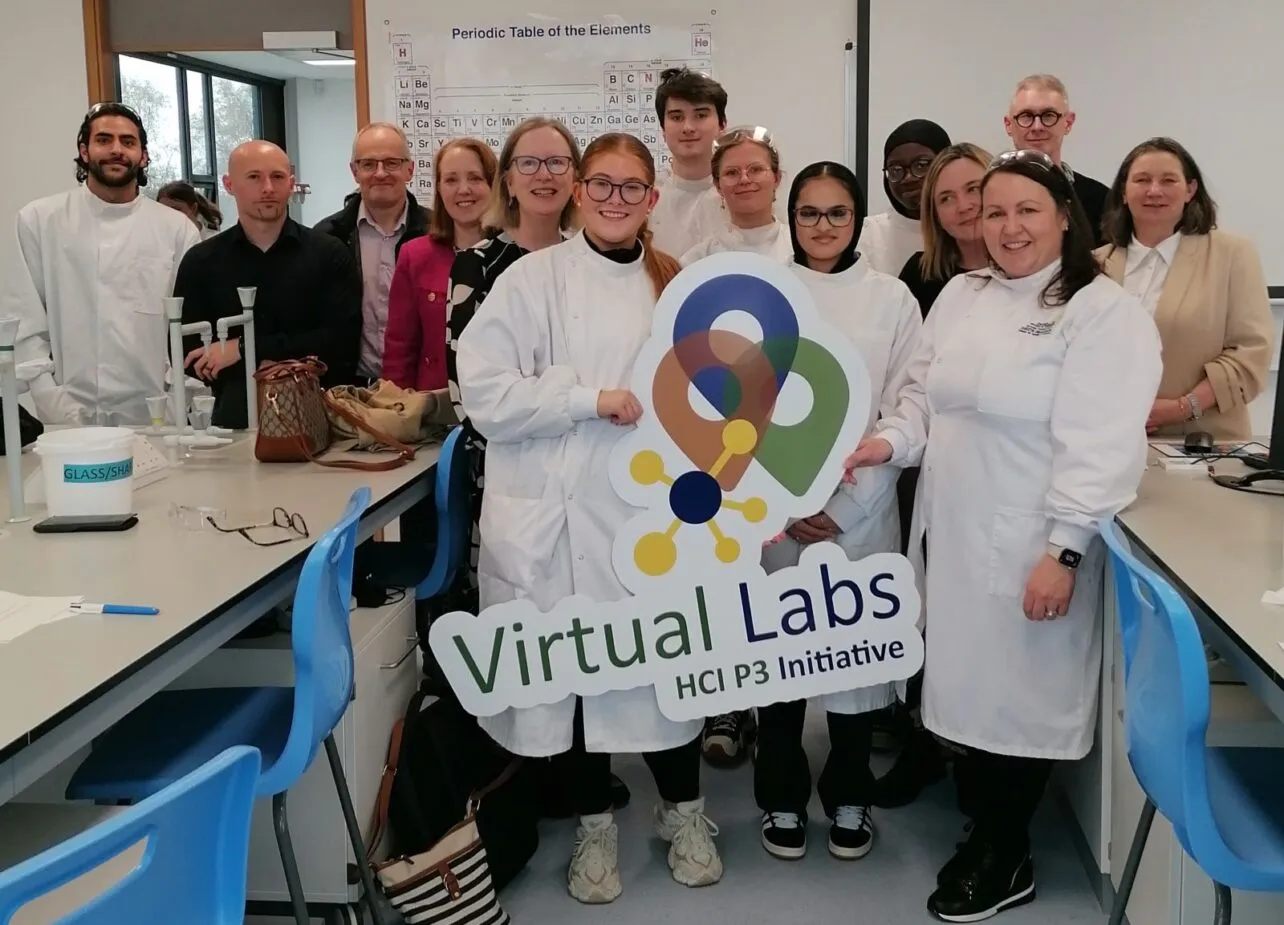A research team which included academics from Technological University of the Shannon (TUS) has been honoured with a major award after using immersive digital labs to reinvent practical science and prepare students for industry.
The Virtual Labs Team has been named as winner of the 2025 Royal Society of Chemistry (RSC) Team Prize for Excellence in Higher Education in honour of their collaborative work that is helping students build more confidence about participating in hands-on lab work.
After selecting them as one of nine Excellence in Education Prize winners this year, the RSC credited the team “for their cross-institution collaboration to integrate virtual labs aimed at enhancing the laboratory experience and preparing students for the industry of the future”.
The group is made up of researchers from Maynooth University, University College Cork, TUS, Dublin City University and Dundalk Institute of Technology.
The researchers from TUS who were involved included: TUS Academic Lead Dr Brian Murphy, Dr Edwin McCullagh, Dr Sinéad Devery, Dr Mary Booth, Dr Carmel Kealey, Dr Ann O’Malley, Dr. Seán Reidy and Dr Colm McKeever.

Together, they focussed on the use of virtual laboratories as a teaching tool for the chemical sciences. By working with enterprise partners and education technology providers, students ranging from first-year undergraduates to master’s-level researchers have had a chance to try a new way of learning. The project started in 2020 and is due to reach the end of its lifetime next year.
In recognition of their efforts, the team will receive £3,000, a team trophy, a certificate and token of recognition for each team member, as well as joining an illustrious body of prize winners. A total of 60 Nobel Prize laureates count among previous winners of RSC awards over the 150 years in which the learned society has honoured scientific excellence.
In a statement, the team said: “It is a huge honour to have been awarded the 2025 Team Prize for Excellence in Higher Education. It is a significant recognition of our shared commitment to excellence in laboratory education and highlights the strength of our collaboration and of working together across roles, disciplines, and institutions.
“It confirms the importance of having a community of practice where ideas are shared and innovation can thrive. Our team is proud to be contributing to a wider movement in laboratory education that embraces innovation, inclusivity, and evidence-based, digitally enhanced laboratory learning. We hope that, by receiving this award we will inspire others to work collaboratively across institutions to support and enhance their students’ education.”
The team’s goal is to determine and implement the most effective strategies to enhance laboratory education in ways that best prepare students to embark on future careers in STEM.
In an environment where laboratory teaching is often constrained in terms of both time and space, educators are challenged to find the best way to provide a quality experience for the modern student which embeds transversal skills alongside developing experimental competencies. A blended approach to laboratory education has obvious advantages in terms of accessibility, and inclusivity was a key priority for our team. Students can complete pre- and post-lab simulations at a time and place that suits their own schedule.
Dr Brian Murphy, the TUS Academic Lead, stated: “The goal of this innovative research project has always been to equip the next generation of future scientists with enhanced technical and work readiness skills critical for success in the modern chemical and pharmaceutical sciences sectors. Virtual Labs facilitate enhanced learner engagement and student success in the learning of experimental techniques and the understanding of core concepts in the chemical and biochemical sciences. The Virtual Labs team at TUS has been an integral part of this wider collaborative project”.
Dr Carmel Kealey, Head of Department Pharmaceutical Sciences and Biotechnology at TUS, added: “The Virtual labs collaborative project continues to transform educational practice at TUS. By using virtual labs with real world applications , students develop practical and cooperative skills directly relevant to their future careers. It is exciting and rewarding for the virtual labs team and their Institutions, that this pioneering approach to lab delivery has been recognised by the prestigious Royal Society of Chemistry for its contribution to educational excellence.’
The Excellence in Education Prizes celebrate inspirational, innovative, and dedicated people working in primary, secondary, further education and higher education – including teachers, technicians and more. These prizes recognise a wide range of skills – from curriculum design to effective teaching, and from personal development to working culture.
Dr Helen Pain, Chief Executive of the Royal Society of Chemistry, added: “The chemical sciences are at the forefront of tackling a range of challenges facing our world. From fundamental chemistry to cutting-edge innovations, the work that chemical scientists do has an important role to play in building our future. The inspiration, innovation and dedication of those who work in education is fundamental to the progress of the chemical sciences – shaping the future and setting our young people up to tackle the challenges and the opportunities facing our society and our planet. The team’s work demonstrates an outstanding commitment to chemistry education, and it is our honour to celebrate their considerable contribution.



